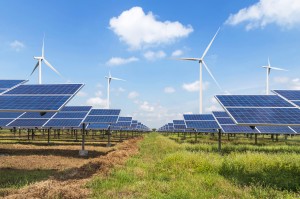Chinese solar module manufacturer Jinko Solar has secured two contracts to supply 150 MW of modules to solar PV projects in Algeria. The company announced it would provide 150 MW of n-type tunnel oxide passivated contact (TOPCon) modules to the 100 MW Ain el Beida project in the Ouargla Province and the 50 MW Beni Ounif project in the Béchar Province.
Jinko Solar highlighted the significant potential of the Algerian market for renewables, noting that as of January 2023, Algeria generated only 3% (686 MW) of its electricity from renewable sources, including 448 MW from solar, according to data from the US International Trade Administration. Despite this, Algeria has high solar irradiance levels, capable of generating 1,850-2,100 kWh and up to 3,500 hours per year in its desert regions.
Algeria aims to produce 27% of its power from renewables by 2035, with a significant focus on solar power.
In addition, Jinko Solar recently signed an agreement with Indian EPC firm Larsen & Toubro to supply 1 GW of n-type TOPCon modules for the NEOM Green Hydrogen Project in Saudi Arabia. This project, touted as the world’s largest carbon-free green hydrogen plant, aims to produce up to 600 tonnes of hydrogen per day by the end of 2026, powered by up to 4 GW of solar and wind energy. The green hydrogen produced will be used to create green ammonia.
Algeria is rapidly developing its photovoltaic (PV) sector as part of its renewable energy strategy. The country has ambitious plans to install 22 GW of renewable energy capacity by 2030, primarily focusing on solar power. Recent tenders have awarded contracts for a total of 3 GW of solar projects. The 2021 tender allocated 1 GW to various companies, including China State Construction Engineering Corp. and Turkish contractor Ozgun, while the 2023 tender awarded 2 GW, involving multiple projects across 12 provinces.
Algeria’s commitment to solar energy is driven by its high solar irradiance levels, especially in desert regions, where it can generate between 1,850 to 2,100 kWh per square meter annually. These projects not only aim to meet local energy demands but also have the potential for export, particularly to the European Union.
This expansion in solar capacity highlights Algeria’s shift towards renewable energy, aiming to significantly reduce reliance on fossil fuels and position itself as a key player in the global renewable energy market.
Post time: Jul-14-2024
